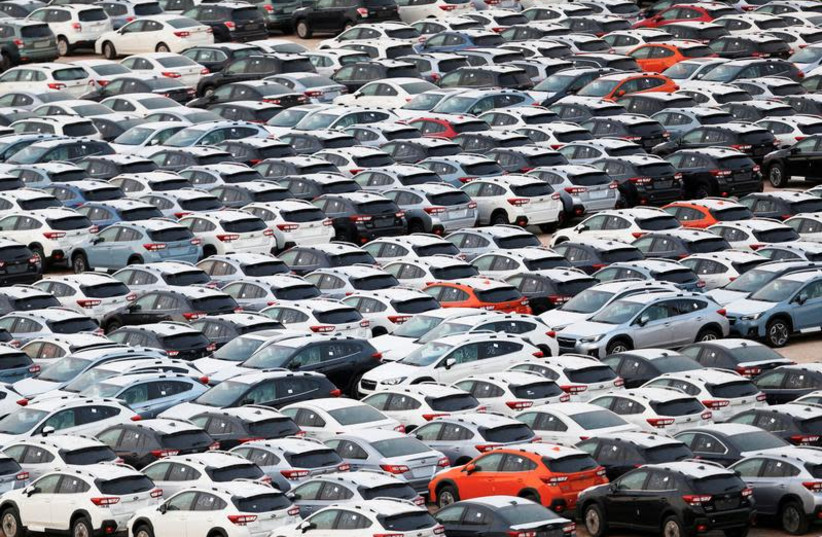A full-scale war in Israel's North could cause a rise in demand for used cars, rather than people buying new ones, according to Meir Ronen Lev, deputy CEO of the Lev Yitzhak Group.
"If there is a full-scale war in the north, the economic crisis will worsen, and we will see people who, under different circumstances would buy a new car, buying used ones, which would increase prices," the deputy CEO said.
Lev Yitzhak's price list reveals how different car models fared in maintaining their value. In the electric car segment, the Geely Geometry C and Hyundai Ioniq series showcased impressive resilience, losing only 6% and 5% of their value respectively throughout the year.
Hybrid models, such as the Hyundai Ioniq, shared a similar rate of value loss. Additionally, the Kia Picanto, known for its value retention, only experienced a 4% drop in value. The Toyota Corolla Hybrid performed even better, losing only 3% of its value.
Surprisingly, the Skoda Octavia, a gasoline family car, depreciated the least, with just a 2% loss in value. Lev speculated that a shortage of new cars may have contributed to increased demand for used vehicles.

In the luxury car category, Lev highlighted a return to standard depreciation levels, with most models losing between 10% and 20% of their value within a year. However, he notes a recent slowdown, suggesting that people are hesitant to replace luxury cars amid the current war. Importers have even reported customers who have ordered and paid for a car but have requested it to be stored until the security situation improves.
How has the Israeli car market changed during the Israel-Hamas War?
Tal Bar-Lev, deputy CEO of Shlomo Car Sales, reflected on the market's performance before and after the war began.
"Until the war, it was an excellent year in the second-hand market. There were no dramatic price drops. The market was balanced, and there were models that maintained a good price," Bar-Lev explained. "After the war started, the market stopped. In the first two weeks, we still sold cars that were ordered before the outbreak of the war, and then we felt the decline."
Bar-Lev explained that during the war, sales experienced a significant decline, with a decrease of 30% to 40%. However, there has been some recovery, with a decline of only 20% in November and a return to the pre-war work plan in December.
Looking ahead to 2024, Bar-Lev predicted that the market will gradually strengthen as time passes. The ongoing war has created a need for cars among various sectors, such as refugees, IDF reservists serving in shifts, and those whose vehicles were damaged. However, difficulties in supply are expected due to canceled shipping lines for cars from the East, a consequence of Houthi attacks in the Red Sea.
The impact of the war on the market remains uncertain, but it appears that the increased demand for used cars may play a significant role in shaping the market's dynamics in the coming months.
